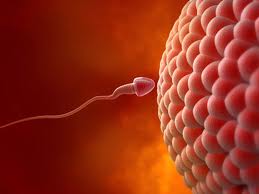 Infertility is a problem that can put a great deal of strain on an individual and on a couple’s relationship. For those couples who have reason to believe that fertility problems are present, Dr. Larry Lipshultz can offer help at his Houston fertility center. Dr. Lipshultz specializes in male reproductive medicine. In cases of couples facing infertility issues, it is possible that the male is the one with reproductive problems, so it is extremely important for him to be evaluated by Dr. Lipshultz. For his patients in Houston, the diagnosis of male infertility will involve semen analysis.
Infertility is a problem that can put a great deal of strain on an individual and on a couple’s relationship. For those couples who have reason to believe that fertility problems are present, Dr. Larry Lipshultz can offer help at his Houston fertility center. Dr. Lipshultz specializes in male reproductive medicine. In cases of couples facing infertility issues, it is possible that the male is the one with reproductive problems, so it is extremely important for him to be evaluated by Dr. Lipshultz. For his patients in Houston, the diagnosis of male infertility will involve semen analysis.
Diagnosing Male Infertility
When working with his patients in Houston, male infertility is taken very seriously by Dr. Lipshultz. A diagnosis will only be made after a careful and thorough evaluation. This evaluation will include obtaining a complete medical history, conducting a physical examination, hormone testing, and semen analysis. Semen analysis is an important part of the diagnostic process. Generally, a semen analysis will be conducted at least twice, with two to three months in between each test. Each semen sample should be collected after a 48 to 72 hour period of abstinence. In order to obtain the ideal conditions and keep the sperm at ideal temperature, it is best for these samples to be collected at our office. Once the semen is collected, it will be analyzed for the following:
- Semen volume: Semen volume measures how much semen is present in one ejaculation. Low semen volume may indicate a blockage in the seminal vesicles.
- Sperm count: Sperm count measures the number of sperm present in each millimeter of semen. Low sperm count can contribute to infertility problems.
- Sperm motility: Sperm motility looks at the movement of sperm. This is a number that shows Dr. Lipshultz the percentage of sperm that show normal forward movement.
- Forward progression: Forward progression is a more specific look at sperm motility. Forward progression analyzes the quality of sperm movement.
- Sperm morphology: Sperm morphology looks at the number of sperm that display a normal shape. Sperm morphology can be a useful predictor of the success rate of sperm to fertilize an egg.
- White blood cell count: In healthy sperm, white blood cells should not be present. The presence of white blood cells may indicate infection or inflammation.
Dr. Lipshultz evaluates all of the information that is available through semen analysis to determine if there is a likely cause of male infertility. With this information, Dr. Lipshultz can offer expert advice on how to proceed in the pursuit of successful pregnancy. Possible treatment options may include in vitro fertilization (IVF), sperm aspiration, intracytoplasmic injections, or other male infertility treatments.
Schedule an Appointment
While it can be very stressful to face infertility, it is important to realize that there are many options available for infertility treatment. The first step is in diagnosing the source of fertility problems. Schedule an appointment with Dr. Lipshultz at your earliest convenience to begin the process of fertility treatment.